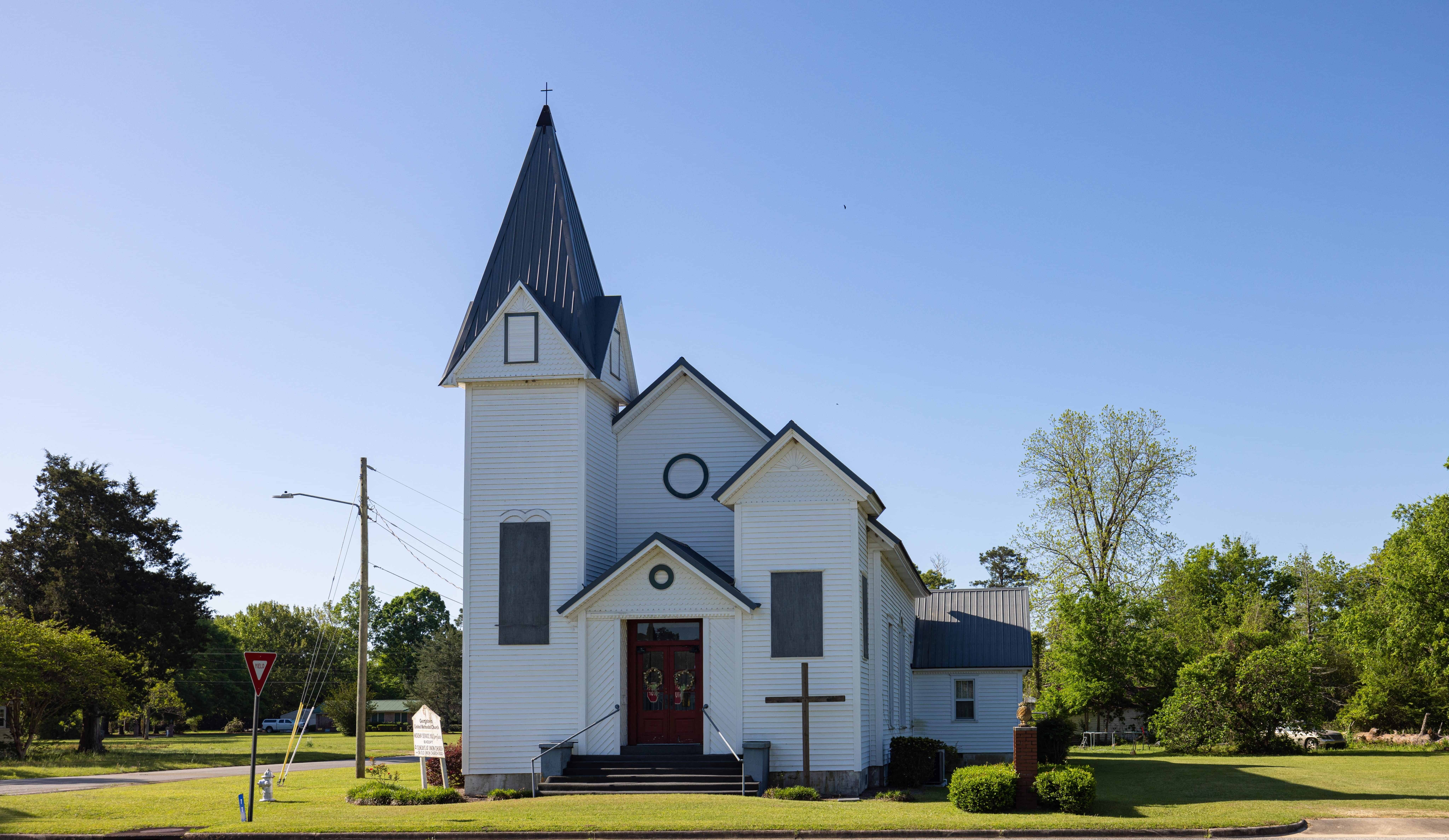Thousands of Congregations Leave United Methodist Church Over Biblical Concerns

Last week, 193 churches disaffiliated from the South Georgia Conference of the United Methodist Church “over matters related to human sexuality,” announced Bishop David Graves, overseer of the Conference.
They are part of a growing exodus from the denomination, with more than 3,500 congregations leaving the second largest Protestant denomination in the United States in 2022 and 2023.
The separations come after years of contention in the UMC over foundational issues of Christian truth on the authority of Scripture, sanctity of life, and God’s design for marriage and sexuality.
Doctrinal disputes within Methodism date back to the turn of the last century, with some active ministers and bishops denying core church doctrines – and not being disciplined.
In recent years, bishops and ministers blessed homosexual relationships. UMC conferences approved lesbian- and gay-identified ministers and bishops, defying Scripture and official Methodist policy. Church leaders also showed support for abortion, denouncing the Supreme Court decision overturning Roe v. Wade.
At its 2019 General Conference, the UMC added a rule to its Book of Discipline which “offers a limited way for congregations to leave the denomination and take full ownership of their buildings and other assets by releasing them from The United Methodist Church’s centuries-old trust clause,” Bishop Graves’ statement explained.
The disaffiliation process created multiple steps for churches who wanted to leave, including a time of prayer and discernment and a vote of approval by at least a two-thirds majority of a church’s professing members. The process also requires the exiting congregations to pay any money owed to the UMC along with all costs for transferring property titles.
Bishop Graves said:
Today is a day of sadness in the life of the South Georgia Annual Conference. We grieve in saying farewell to the 193 churches disaffiliating from The United Methodist Church and wish them the best in ministry. Many of these churches have dedicated clergy and laity who truly desire to serve God and their communities.
The Bishop also expressed appreciation for the 274 churches which chose to remain in the UMC.
The 193 churches in this latest group to leave “are choosing a variety of futures for their ministries,” with some becoming independent and not affiliating with a denomination.
Others are joining more conservative Methodist groups, such as the Congregational Methodist Church, the Free Methodist Church, or the Global Methodist Church, an international denomination that launched just over a year ago.
Mark Tooley, president of the Institute on Religion and Democracy, wrote an article at World magazine listing other large groups of churches leaving the UMC:
- On May 11, 132 churches were approved for exit by the North Alabama Conference, which already approved 198 exits on Dec. 10, 2022, for a total of 330 exiting churches.
- In the Houston area Texas Conference, on May 11, 20 more churches were approved for exit, adding to last year’s 294.
- On May 7, the Alabama-West Florida Conference ratified 193 exiting churches. Last year 35 churches exited, bringing the total so far to 233.
- In Western North Carolina on May 6, 193 churches were approved for exit, joining 41 who exited in 2022.
- On April 22, the Holston area of eastern Tennessee and southwest Virginia approved 264 church exits.
Some of the departure attempts have been contentious, leading to churches abandoning their properties or turning to litigation.
Tooley wrote:
As recently as 2019, United Methodism reaffirmed and strengthened its biblical teachings about marriage and sexual ethics. But liberal clergy and bishops made clear their refusal to uphold official church law. Traditionalists decided to take advantage of the unusual temporary church law, approved in 2019 and expiring at the end of this year, allowing churches to exit with their property, which the denomination owns.
Tooley said UMC leaders are “rightly worried” about the denomination’s future, adding that they only have themselves to blame for the move away from orthodox teachings:
Their denomination’s future is grim. But they show no awareness that their own revisionist theology is at fault. Instead, they blame exiting orthodox Methodists for the rift. Let’s pray their eyes might someday be opened.
Related articles and resources:
Coronavirus Delays Split Between Biblical and Revisionist Groups Within United Methodist Church
Global Methodist Church Launches – Separates from United Methodist Church
70 United Methodist Churches in Georgia Leaving Denomination Over Biblical Doctrine on Sexuality
Traditional Methodists Move Toward New Denomination – ‘Global Methodist Church’
United Methodist Leader Demonstrates LGBT Take-Over is the New Fundamentalism
Photo from Shuttterstock.
ABOUT THE AUTHOR
Jeff Johnston is a culture and policy analyst for Focus on the Family and a staff writer for the Daily Citizen. He researches, writes and teaches about topics of concern to families such as parental rights, religious freedom, LGBT issues, education and free speech. Johnston has been interviewed by CBS Sunday Morning, The New York Times, Associated Press News, The Christian Post, Rolling Stone and Vice, and is a frequent guest on radio and television outlets. He graduated Phi Beta Kappa from San Diego State University with a Bachelors in English and a Teaching Credential. He and his wife have been married 30 years and have three grown sons.
Related Posts

The Refreshing Patriotism of Olympian Jasmine Jones
February 13, 2026

Colorado Committee Kills ‘Children Are Not for Sale Bill’
February 13, 2026

Washington School District Buries Female Wrestler’s Sexual Assault Complaint Against Male Opponent
February 12, 2026

“Who Am I?”: James Van Der Beek’s Final Answer
February 12, 2026
